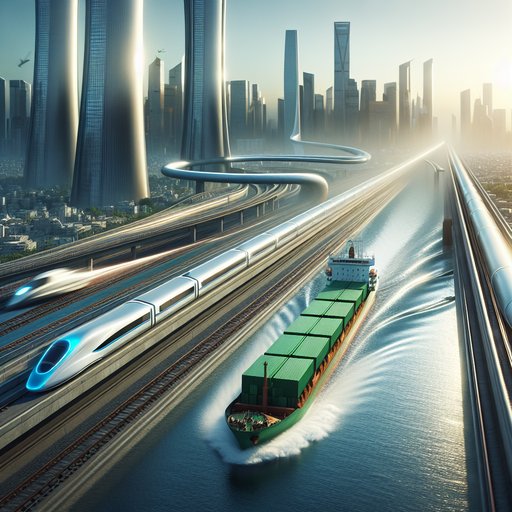
As the world grapples with the urgent need for sustainable development, the transport sector is undergoing a remarkable transformation. Innovations such as bullet trains, hyperloops, and green cargo ships are not only redefining speed and efficiency but also paving the way for a cleaner, greener future. This article explores these groundbreaking technologies and their potential societal impact.
Bullet trains, a marvel of Japanese engineering, have long symbolized the fusion of speed, efficiency, and environmental consciousness. These high-speed rail systems, capable of reaching speeds over 300 km/h, have transformed intercity travel, reducing journey times while minimizing carbon emissions. Yet, even as bullet trains continue to evolve, a new contender has emerged on the horizon: the hyperloop. Conceived by Elon Musk, the hyperloop promises to revolutionize transport with speeds exceeding 1000 km/h.
Enclosed capsules travel in vacuum tubes, virtually eliminating air resistance and enabling unprecedented velocities. The first successful hyperloop test in 2016 sparked a global race to bring this concept to life. Companies like Virgin Hyperloop and Hyperloop Transportation Technologies are working tirelessly to overcome technical challenges and regulatory hurdles. If successful, hyperloops could drastically reduce travel times, transforming economic and social landscapes.
Parallel to these terrestrial advancements, the maritime industry is also witnessing a green revolution. Traditional cargo ships, notorious for their substantial carbon footprint, are being replaced by innovative green alternatives. Wind-powered cargo ships, for instance, are making a comeback, with modern designs that harness wind energy more efficiently than their historical counterparts. Innovations are not limited to wind power.
Some companies are exploring solar-powered ships, while others are developing hybrid models that combine sails with biofuels or electric propulsion. These green ships could significantly reduce the maritime industry's environmental impact, contributing to global efforts against climate change. These advancements in transport infrastructure are not without challenges. High development costs, technical complexities, and regulatory issues pose significant hurdles.
However, the potential benefits - faster travel, reduced emissions, and economic growth - are compelling. As we stand on the brink of this transport revolution, it is crucial to foster international cooperation and public-private partnerships. Only by pooling resources and expertise can we overcome the challenges ahead and realize the full potential of these groundbreaking technologies. The journey towards sustainable transport is a long and complex one.
Yet, with innovations like bullet trains, hyperloops, and green cargo ships, we are moving in the right direction. The future of transport is not just faster and more efficient - it is also cleaner and greener.























































